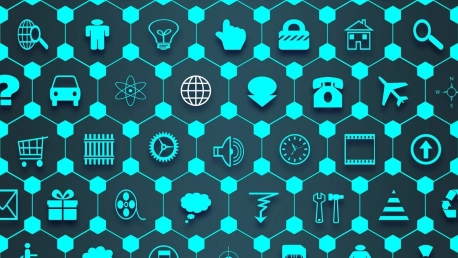Artificial Intelligence (AI) is redefining the landscape of facility management, heralding an era of unprecedented efficiency, cost savings, and enhanced safety. However, alongside these promising advancements lie considerable risks and ethical challenges that must be carefully navigated. This article will explore how AI can revolutionize various aspects of property management, such as early property damage detection, tenant selection, and on-site security, while also addressing the potential pitfalls that come with these innovations.
The Role of Early Property Damage Detection
Smart Sensors and IoT Integration
The advent of AI-powered smart sensors connected through the Internet of Things (IoT) has transformed the way facility managers monitor properties. Real-time sensors measure conditions such as temperature, humidity, and air quality. By collecting and analyzing data continuously, these sensors enable early identification of issues like leaks, mold, and structural weaknesses long before they escalate into major problems. Such early detection capabilities allow facility managers to take swift and targeted actions, thereby minimizing the extent of damage and associated repair costs.Smart sensors provide real-time alerts, prioritizing maintenance efforts based on specific needs rather than generalized schedules. This proactive approach reduces both repair costs and downtime, ensuring facilities operate smoothly. For example, an AI system can detect an increase in humidity and alert a facility manager to a potential leak, allowing immediate investigation and repair. The combination of AI with IoT not only enhances the precision of detection but also provides historical data analysis, offering valuable insights into trends and recurring issues. These insights can help managers make data-driven decisions about long-term maintenance strategies.
Cost Efficiency and Long-term Savings
In the past, facility management relied heavily on reactive maintenance, often resulting in costly repairs and extensive damage that could have been avoided with earlier intervention. AI-driven early detection systems minimize these risks by identifying issues before they become severe. By doing so, they contribute to considerable long-term savings for property owners and managers who no longer have to deal with the financial burden of emergency repairs and equipment replacements. These systems also optimize resource allocation by ensuring that maintenance teams focus on areas of immediate concern, enhancing overall efficiency.In cases where external contractors are involved, early detection aids in more accurate diagnostics and planning, reducing labor and material costs. Furthermore, preventive maintenance driven by AI systems can extend the lifespan of essential building components, lowering lifecycle costs. Many facilities have reported significant reductions in their overall maintenance budgets and improved tenant satisfaction due to fewer unexpected disruptions and better-maintained environments. Ultimately, integrating AI with facility management not only fosters financial prudence but also aligns with sustainability goals by minimizing waste and resource usage.
Streamlining Tenant Selection Process
AI Tools for Data Analysis
AI introduces a high level of automation and precision to the tenant selection process, transforming a traditionally labor-intensive and subjective task into a streamlined, data-driven operation. By leveraging AI tools, property managers can quickly gather and analyze large volumes of data from potential tenants, including credit scores, rental histories, employment information, and other relevant attributes. This capability significantly reduces the time spent on data entry and preliminary assessments, allowing managers to focus on more strategic tasks that require human insight and judgment.These AI tools scrutinize data points with sophisticated algorithms to ensure a more consistent and unbiased evaluation process. Automated systems can sift through thousands of applications within minutes, ranking potential tenants based on pre-determined criteria that align with the property’s goals and policies. This not only speeds up the tenant selection process but also reduces the likelihood of human error and biases that could otherwise influence decisions. The increased efficiency and accuracy potentially lead to better tenant selections and lower default rates, enhancing the overall quality and stability of the tenant community.
Privacy and Ethical Considerations
While AI can streamline tenant selection, it introduces significant risks around handling sensitive financial and personal identifiable information (PII). Ensuring data privacy and protecting against breaches are paramount concerns that must be addressed. Facility managers must comply with regulations such as the General Data Protection Regulation (GDPR) and the California Consumer Privacy Act (CCPA) to safeguard tenant information. These regulations mandate stringent data protection measures and grant tenants greater control over their personal information, which can complicate data management tasks.Moreover, the risk of algorithmic bias in tenant selection must not be overlooked. AI systems must be designed and monitored to prevent discrimination based on race, gender, or other protected characteristics. Regular audits and transparent algorithms are essential for maintaining fairness and avoiding legal issues. Continuous monitoring and updates of AI systems can help mitigate these risks. Facility managers must also cultivate an ethical use of AI, ensuring their tools do not inadvertently perpetuate systemic biases. This involves not only technological safeguards but also a commitment to ethical standards and practices in data handling and decision-making.
Enhancing On-Site Security
Smart Cameras and Surveillance Robotics
AI-driven security technologies, including smart cameras and surveillance robots, offer powerful tools for enhancing on-site security. These devices use advanced algorithms to detect unusual activities and potential threats in real time, providing round-the-clock monitoring without the need for continuous human supervision. The level of vigilance that AI can sustain surpasses human capabilities, making these tools a vital part of modern security protocols. Smart cameras can analyze video footage for suspicious behavior, triggering alerts for immediate action when potential security breaches are detected.Surveillance robots equipped with internet-connected screening capabilities can patrol properties autonomously, ensuring comprehensive coverage even in large and complex facilities. These robots can navigate pre-determined routes, capture high-definition video, and recognize various risk factors through machine learning algorithms. Additionally, they can be integrated with other security systems, such as access control and alarm systems, to provide a cohesive and multi-layered security network. This integration further enhances the overall security infrastructure, offering property managers a robust solution for both vacant and occupied properties.
Human Oversight and Ethical Concerns
Despite the sophistication of AI security systems, human oversight remains critical for interpreting complex scenarios and ensuring nuanced assessments. Facility managers must interpret alerts and make judgment calls that AI systems may not be capable of handling. Human intervention ensures that false positives are addressed, and overlooked threats are identified, maintaining a balanced and effective security framework. For example, while an AI system might detect unusual movement patterns, a human assessor can better judge the context and potential implications of such detections.Ethical concerns also arise with AI surveillance, particularly regarding privacy. Facilities must have clear policies and signage to inform occupants of surveillance practices. Transparency about how data is collected, stored, and used helps to maintain trust and comply with legal standards. Striking a balance between security needs and privacy rights is essential. Surveillance systems must be designed to minimize intrusiveness while achieving security objectives. This balance can be maintained through measures like masking of faces in video footage and securing all recorded data against unauthorized access.
Integration of AI in Daily Operations
Operational Efficiency and Cost Reduction
AI integration extends beyond specific applications to the overall operational efficiency of facility management. From automating routine tasks to optimizing resource management, AI tools can enhance virtually every aspect of facility management. These systems contribute to significant cost savings by reducing manual labor, improving accuracy, and enabling data-driven decision-making. For instance, AI can manage energy consumption by dynamically adjusting heating, ventilation, and air conditioning (HVAC) systems based on occupancy and usage patterns.This not only reduces energy costs but also supports sustainability initiatives, aligning with modern corporate social responsibility (CSR) goals. Automated systems can also monitor and control lighting, and water usage, and other utilities, further enhancing resource efficiency. By integrating AI with existing Building Management Systems (BMS), facility managers can achieve a smarter, more responsive environment that adapts to real-time conditions and needs. The continuous monitoring and reporting capabilities of AI also enable predictive maintenance, reducing unplanned downtimes and enhancing the longevity of facility assets.
Skill Development and Training
Artificial Intelligence (AI) is transforming the field of facility management, ushering in remarkable improvements in efficiency, cost reduction, and safety enhancements. This technological revolution holds great promise in various aspects, such as the early detection of property damage, optimizing tenant selection processes, and bolstering on-site security measures. With AI, property managers can identify maintenance issues before they escalate, ensuring timely repairs and preventing costly damages. Additionally, AI-powered tools can analyze vast amounts of data to match properties with suitable tenants, enhancing both satisfaction and retention rates. In terms of security, AI can monitor surveillance systems in real-time, identifying potential threats and allowing for swift response actions.However, these advancements are not without their challenges. The implementation of AI in facility management raises significant ethical considerations and potential risks. Privacy concerns arise with the extensive data collection and surveillance capabilities of AI systems. Furthermore, there is the risk of over-reliance on technology, which could lead to neglect of human judgment and oversight, potentially resulting in critical oversights.As AI continues to evolve, it is crucial for stakeholders in facility management to navigate these ethical dilemmas carefully and to strike a balance between leveraging technology for its benefits and addressing the associated risks.









